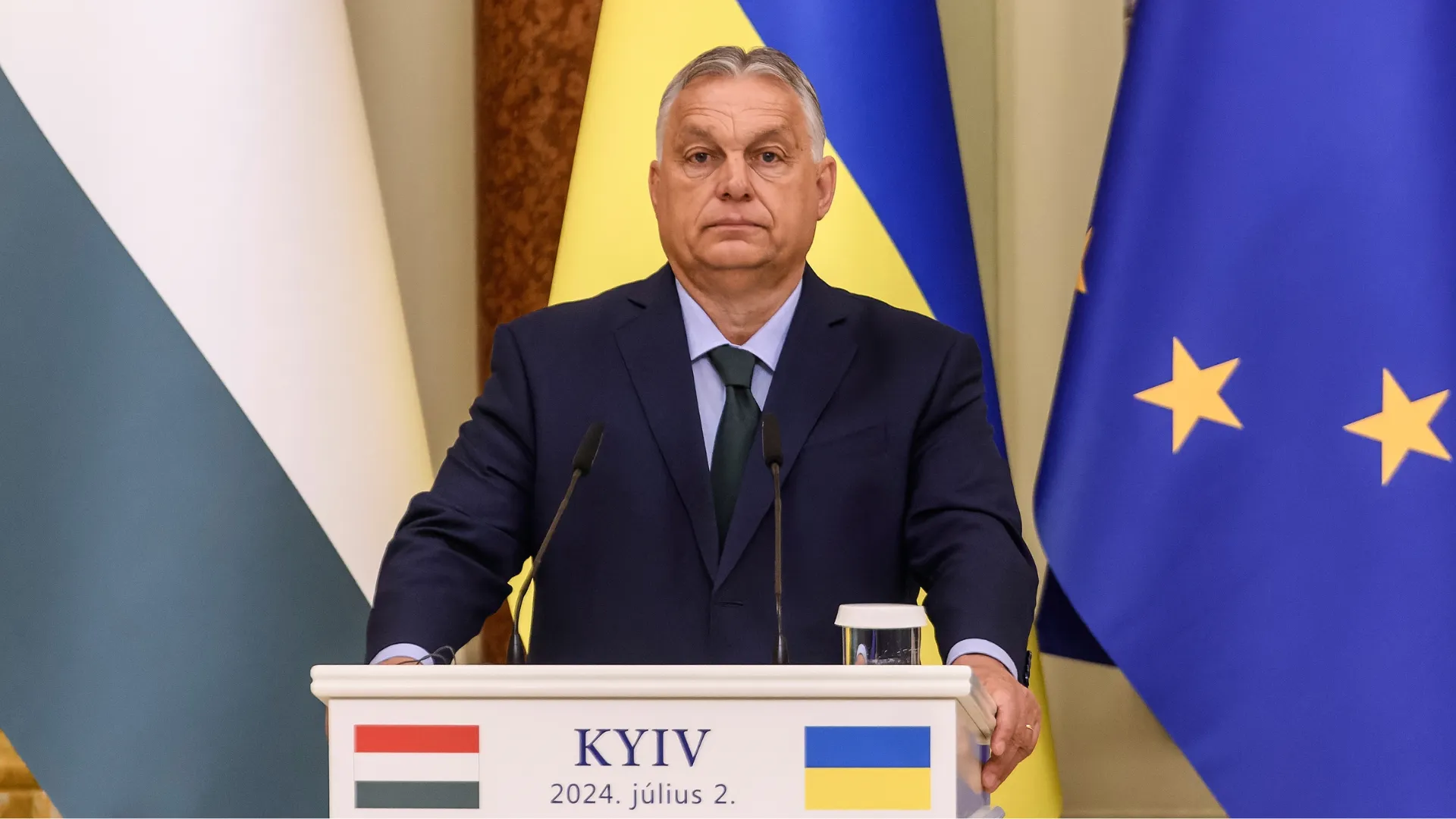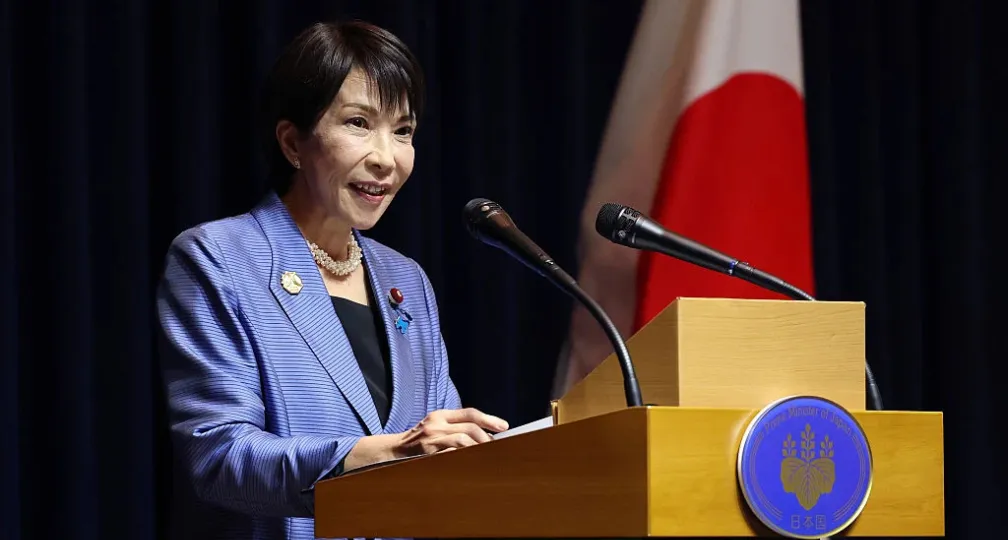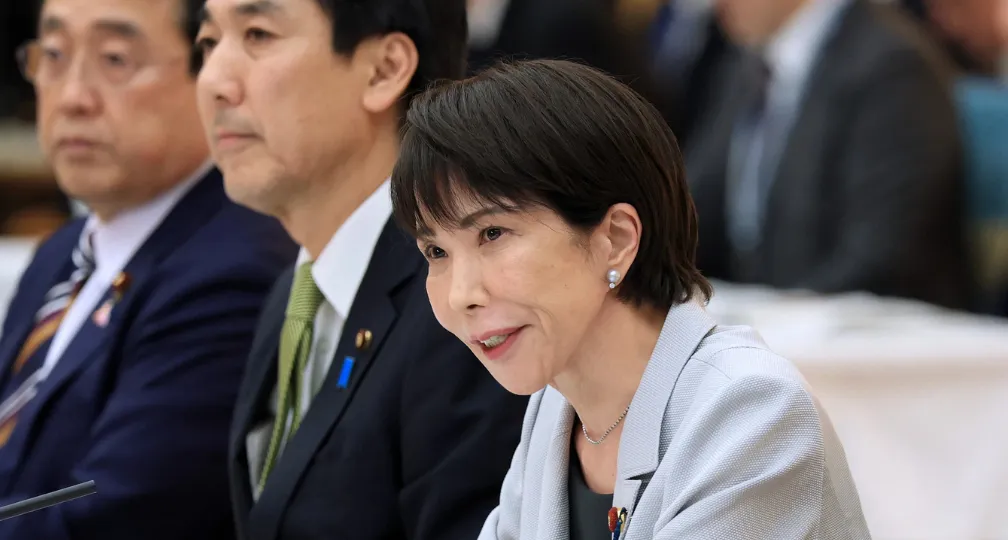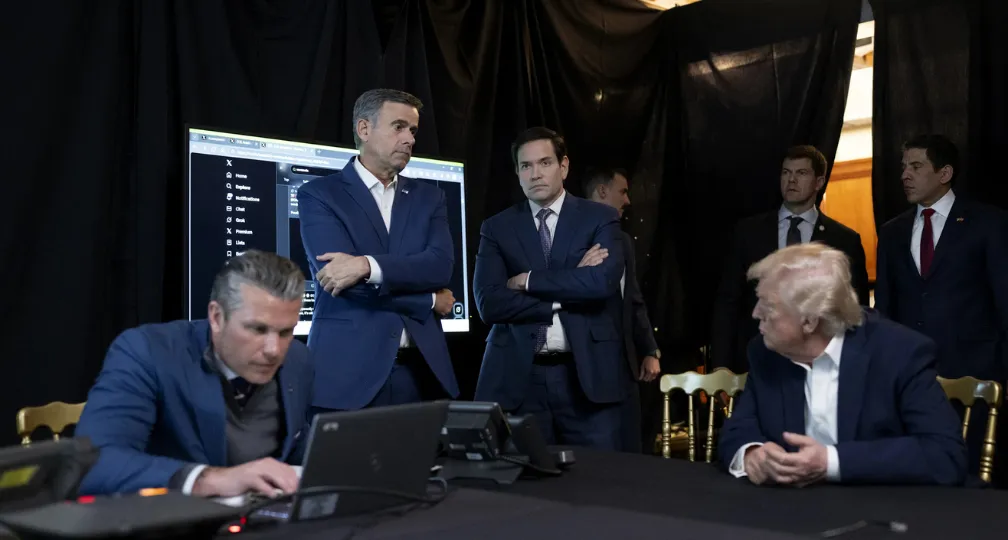Democracy-minded Yoon faces challenges in dealing with China
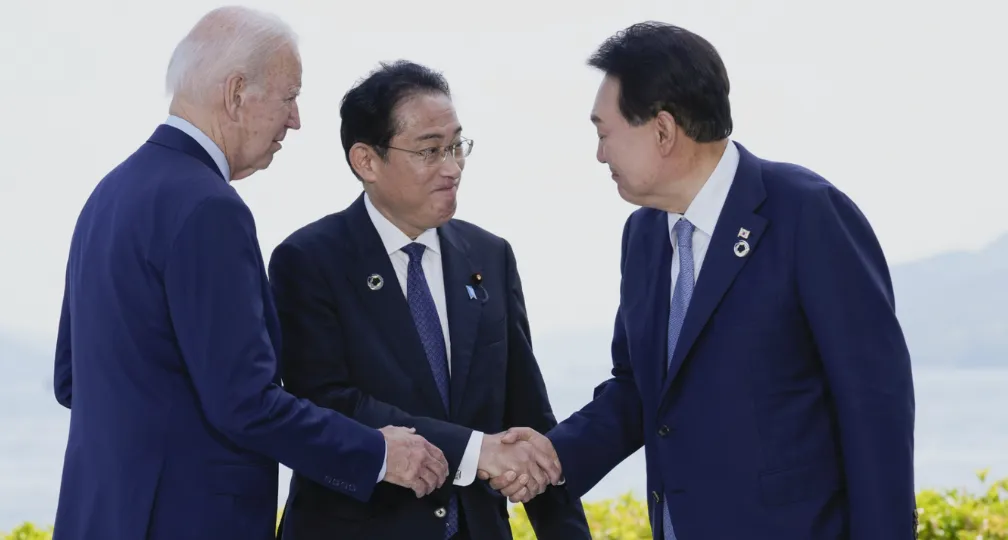
Professor of Department of Political Science, the Director of the Center for Contemporary Korean Studies, Keio University
This article was posted to the Japan Times on June 29, 2023
https://www.japantimes.co.jp/opinion/2023/06/29/commentary/world-commentary/south-korea-diplomacy/
South Korean President Yoon Suk-yeol’s administration has been speedily implementing a diplomatic approach pledged during his presidential campaign — putting weight on universal values such as freedom, democracy, rule of law and human rights, and strengthening ties with like-minded countries — in the year since he took office.
“It is our generation’s calling to build a nation that espouses liberal democracy and ensures a thriving market economy, a nation that fulfills its responsibility as a trusted member of the international community, and a nation that truly belongs to the people,” Yoon said at the beginning of his inaugural address made in May last year.
His remarks indicate a concern that such foundations of the nation had been shaken under the administration of his predecessor Moon Jae-in.
Amid intensified confrontations between the conservative camp that supports Yoon and the progressive camp behind Moon, the change of government between the ruling and opposition parties brought about a great shift in South Korea’s politics and diplomacy.
Global perspectives
In February last year, Yoon, as a presidential election candidate, strongly criticized the Moon administration in an article published in Foreign Affairs, saying: “Dealing with North Korea is an important task for any South Korean government. But it should not represent the whole of Seoul’s diplomacy.
“Under President Moon Jae-in, however, dialogue with the North has become an end in itself. Meanwhile, as U.S.-Chinese tensions have grown, South Korea has failed to adapt, maintaining an approach of strategic ambiguity without stating a principled position.”
“South Korea should no longer be confined to the Korean Peninsula but rise to the challenge of being what I have described as a ‘global pivotal state,’ one that advances freedom, peace and prosperity through liberal democratic values and substantial cooperation.”
Since he became president, Yoon has conducted diplomacy in line with his election campaign pledges.
In May last year, soon after he took office, he invited U.S. President Joe Biden to Seoul to show how ironclad the U.S.-South Korea alliance is. The following month, Yoon attended a NATO leaders’ summit as an observer and decided to establish a South Korean mission to NATO in Brussels.
He also held a trilateral meeting with Biden and Prime Minister Fumio Kishida on the sidelines of the NATO summit, expressing willingness to improve Japan-South Korea relations and strengthen trilateral ties.
In November, the three leaders met again in Phnom Penh and issued a joint statement on the trilateral partnership for the Indo-Pacific, which stated: “The leaders will align our collective efforts in pursuit of a free and open Indo-Pacific, that is inclusive, resilient, and secure.”
The statement also said they will launch a dialogue among the three governments on economic security, and will commit to cooperating closely through the Indo-Pacific Economic Framework.
And in December, South Korea released its own strategy for the Indo-Pacific region.
Yoon has continued to eagerly push forward his diplomatic activities this year, agreeing with Kishida in March to resume “shuttle diplomacy,” visiting the U.S. in April as a state guest and hosting the country’s first summit with leaders of Pacific islands in May.
In fact, ever since then-President Lee Myung-bak’s administration released its Global Korea policy in 2012, South Korean diplomacy has been centered on a recognition that the country must make more contributions to the global community, regardless of whether the administration was headed by the conservative or the progressive camp.
The administration of Moon, Yoon’s predecessor, also conducted diplomacy with confidence in the country, which had become a member of the Group of 20 and also the world’s No. 10 economic power.
However, under the Moon administration, such confidence grew into nationalism, which was reflected in its policies toward North Korea and Japan.
On the other hand, the Yoon administration is striving for global solidarity based on universal values — in other words, internationalism. The current international circumstances following Russia’s invasion of Ukraine are providing significant support to Yoon’s diplomatic approach.
Relationship with China
Needless to say, one of the major challenges facing Seoul’s diplomacy from now on is how to develop relations with Beijing.
In particular, amid intensifying strategic competition between the U.S. and China, how to handle the issue will come as an even heavier burden for the Yoon administration, which is advancing with value-oriented diplomacy.
So far, the Yoon administration is maintaining its stance of telling China that what’s right is right and what’s wrong is wrong in order to realize a China-South Korea relationship based on “mutual respect” as he had pledged during presidential campaigns.
In April, remarks on Taiwan made by Yoon during an interview with Reuters attracted attention.
“After all, these tensions occurred because of the attempts to change the status quo by force, and we together with the international community absolutely oppose such a change,” he said.
“The Taiwan issue is not simply an issue between China and Taiwan but, like the issue of North Korea, it is a global issue,” Yoon added.
Furthermore, in an unprecedented move, only hours after China’s Foreign Ministry denounced Yoon’s remarks, South Korea’s Foreign Ministry hit back, saying Beijing’s comments were “unspeakable.”
While the Yoon administration’s China policy is backed by the South Korean people’s harsh sentiment toward Beijing, Seoul obviously needs to be fully prepared against China’s economic coercion if it wants to stick to its stance of building ties with China based on mutual respect.
This is because South Korea learned a significant lesson in 2017 when the installation of the U.S. Terminal High Altitude Area Defense (THAAD) system in the country angered China, leading to economic retaliation against South Korean industries, although Beijing never specifically linked that to the THAAD deployment.
The Moon administration at the time was aiming to reduce excessive economic dependence on China, reflected in its New Southern Policy aimed at deepening ties with the Association of Southeast Asian Nations (ASEAN) and India.
South Korean diplomats and experts at the time also pointed to the indispensability of U.S. assistance.
There was discontent among South Koreans over then-U.S. President Donald Trump’s administration as it did not take measures to protect South Korea from Chinese coercion even though Seoul deployed THAAD at the request of the U.S.
Against that backdrop, the Yoon administration must have needed a guarantee that the U.S. and South Korea — and Japan — would work jointly to counter coercion from Beijing, while boosting the U.S.-South Korea alliance at the same time.
Economic security
Based on such a perspective, it is noteworthy that a joint statement issued by the foreign ministers of Japan, the U.S. and South Korea following a meeting in New York in September stated, “The Secretary and Foreign Ministers emphasized the importance of trilateral cooperation to strengthen the rules-based economic order and promote prosperity in the Indo-Pacific region and the world. In particular, they noted the need to stand together in the face of economic coercion and committed to work together to deter and respond to such actions.”
As the Yoon administration strengthens its alliance with Washington amid the U.S.-China strategic competition, it also needs to work sensitively and cautiously on economic security.
Although South Korean chipmakers Samsung Electronics and SK Hynix made large-scale investments in the U.S. in response to the Biden administration’s request, production in their factories in China is feared to be restricted by a series of semiconductor export control measures imposed by Washington.
While the companies can cope with the regulations by producing cutting-edge chips in the U.S. and manufacturing general-purpose ones in China, if the U.S.-led supply chain “friend-shoring” — sourcing inputs from suppliers in allied countries — accelerates, it would severely damage South Korea’s economic benefits generated in China.
Concerns are also growing in South Korea over the U.S. Inflation Reduction Act, which could put South Korean carmakers and battery manufacturers in a disadvantageous position in the U.S. market, leading to criticism that the Yoon administration’s response is insufficient.
Many hope the Yoon administration will employ skilled balancing to prevent or minimize economic losses while keeping pace with Washington.
In coping with the current international situation, including the U.S.-China strategic competition and Russia’s invasion of Ukraine, Japan and South Korea in fact share the common challenge of managing ties with China while boosting their alliance with the U.S.
Particularly since Yoon took office, South Korea’s diplomatic approach has mostly aligned with that of Japan and shared many common challenges, as can be seen in the advancing of trilateral cooperation between Tokyo, Washington and Seoul, as well as South Korea’s compilation of a strategy on the Indo-Pacific region.
As improvements are seen in Japan-South Korea relations for the first time in a decade, the two countries now have the opportunity to share each other’s diplomatic strategy and cooperate on common challenges.
Working together
During his visit to Tokyo in March, Yoon said in a speech at Keio University that “Korea and Japan, two close neighbors, are liberal democracies that share a foundation built on universal values such as freedom, human rights, and the rule of law. This fact in itself holds a special meaning.
“This signifies that our two countries must assume our leadership roles together as we strive towards the common goal of peace and prosperity in the international community through solidarity and cooperation, transcending mere adherence to international norms and mutual respect.”
From now on, as the two countries push their respective Indo-Pacific strategies, they should actively consider working together or dividing roles between them on policies related to ASEAN and the Pacific islands, which both of them focus on.
On the other hand, looking at discussions in Japan and South Korea on peace and stability in the Taiwan Strait — an issue that has been attracting increasing attention in recent years — it appears that there remain gaps in recognition and sentiment between the two countries on China policies.
Now is the time for both nations to activate a dialogue first on their strategies and recognition in order to enable wide and deep cooperation in the Indo-Pacific region.
(Photo Credit: AP / Aflo)

Geoeconomic Briefing
Geoeconomic Briefing is a series featuring researchers at the IOG focused on Japan’s challenges in that field. It also provides analyses of the state of the world and trade risks, as well as technological and industrial structures (Editor-in-chief: Dr. Kazuto Suzuki, Director, Institute of Geoeconomics (IOG); Professor, The University of Tokyo).
Disclaimer: The opinions expressed in Geoeconomic Briefing do not necessarily reflect those of the International House of Japan, Asia Pacific Initiative (API), the Institute of Geoeconomics (IOG) or any other organizations to which the author belongs.
-
 Orbán in the Public Eye: Anti-Ukraine Argument for Delegitimising Brussels2026.02.04
Orbán in the Public Eye: Anti-Ukraine Argument for Delegitimising Brussels2026.02.04 -
 Trump, Takaichi and Japan’s Strategic Crossroads2026.02.03
Trump, Takaichi and Japan’s Strategic Crossroads2026.02.03 -
 Analysis: When Is a Tariff Threat Not a Tariff Threat?2026.01.29
Analysis: When Is a Tariff Threat Not a Tariff Threat?2026.01.29 -
 Takaichi’s Strengths and the Need for ‘Strategic Signaling’2026.01.23
Takaichi’s Strengths and the Need for ‘Strategic Signaling’2026.01.23 -
 Takaichi’s Twin Challenges: Economic Growth and Security2026.01.13
Takaichi’s Twin Challenges: Economic Growth and Security2026.01.13
 Oil, Debt, and Dollars: The Geoeconomics of Venezuela2026.01.07
Oil, Debt, and Dollars: The Geoeconomics of Venezuela2026.01.07 It’s Now or Never: India’s Ambitious Reform Push2026.01.09
It’s Now or Never: India’s Ambitious Reform Push2026.01.09 Analysis: When Is a Tariff Threat Not a Tariff Threat?2026.01.29
Analysis: When Is a Tariff Threat Not a Tariff Threat?2026.01.29 Navigating Uncertainty in U.S. Space Policy: Decoding Elon Musk’s Influence2025.04.09
Navigating Uncertainty in U.S. Space Policy: Decoding Elon Musk’s Influence2025.04.09 Orbán in the Public Eye: Anti-Ukraine Argument for Delegitimising Brussels2026.02.04
Orbán in the Public Eye: Anti-Ukraine Argument for Delegitimising Brussels2026.02.04


